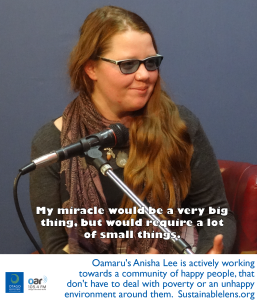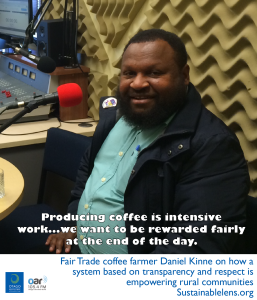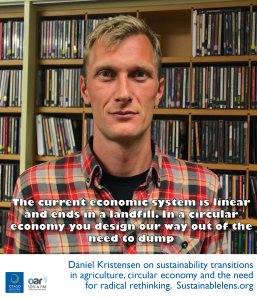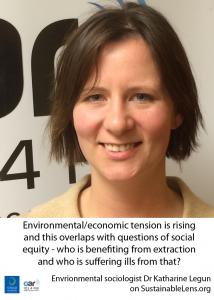My miracle would be a very big thing, but would require a lot of small things.
Anisha Lee is involved in community development in Oamaru. We talk about her experiences in farming, geology, botany, tourism, environmental farm plans and community gardens. we talk about all of these things, along with plans to bring Ooooby to Oamaru.
Talking points
From a personal responsibility level there seems to be a change in the dairy industry – this is beneficial for everybody if we take responsibility for the decisions you take.
The environment will win in the end if you destroy the thing that is feeding your business – the soil – but it will take casualties on the way through.
No one wants to do bad. But they only know how to do good in the context of what they know is good. People do listen to their managers, but it’s an apprenticeship system without regulation – they think they’re doing good, but they’ve been taught by people who didn’t know either. All genuine people who believe they are doing the right thing.
The best way to bring about change is to get farmers who are doing a great job to run groups – to build a sense of community people who know and are doing a good job of environmental management.
International visitors hear “clean and green” don’t realise that it is provided by an irrigator – it’s not naturally green around here. They realise we have a genuine problem, that we’re not as environmentally friendly as we look on a postcard. It is definitely going to damage tourism is we don’t stop saying something we’re not.
They see environmental mayhem with a small reserve on the edge and are appalled at we call a clean green country.
If we take care with what we do to meet our animalistic desires and requirements, then the other stuff might come a bit easier
Making sure we’re not polluting and are supporting an environment that will keep producing food and preventing poverty and assisting in communities being healthy, more rounded people as well as looking after the facilities around us that provide us with food.
Seeing beginning of the tipping point.
But we’ve been removed as society from understanding what is really important to us.
People are starting to realise that what we eat – where it comes from is really important. It is easier to drive to the supermarket, but in the long run that is not better for everyone.
Helping people have more connections within the community.
(Success?) Graduating. Being involved in the fantastic and enriching Summer School
(Activist?) If it means someone who screams and yells outside and doesn’t do much else, then not really. If it means someone who takes action, then yes.
(Motivation?) I like helping people, being around people, seeing people happy. I see a lot of non-happiness in the world, and I try my best to change that.
(Challenges?) OOOOBY, Education material for the cape re-vegetation project.
(Miracle?) My miracle would be a very big thing, but would require a lot of small things. Happy people, that don’t have to deal with poverty and an unhappy environment around them. Coming up with a solution that means we’re not reliant on petroleum for everything. And getting back to our roots without having to lose too much of that comfort that we’ve managed to acquire.
The smallest thing that anyone could do that would make the biggest impact is to go and talk to your neighbours. Get to know the person who lives next door and be pleasant to them. We’ve all got to live together, whether we like it or not.
(Advice?) Be nice to everybody. Have some compassion, everybody has their struggles. They might tell you what they need and you might be able to help if you’re just prepared to listen.
This series of conversations in Oamaru was prompted by discussions with Phoebe Eden-Mann following her OU Geography field trip to explore Oamaru as a transition town.
We are very grateful to the helpful folks from 45 South Television for the use of their studio.





